In this article, we look ahead to likely developments in UK biogas and biomethane in 2024 to give you our thoughts on the trends likely to develop this year for better, and in some cases, for worse for the anaerobic digestion (AD) industry sector in the United Kingdom.
As energy costs remain high and record profits are being recorded for the mainstream energy companies you might think that all is well, but we're not so sure. At the same time we certainly do believe that the UK's Anaerobic Digestion (AD) industry faces a pivotal moment.
There is close to unanimous agreement across science and politics that the AD sector is vital for:
- achieving net zero by providing renewable energy for hard-to-decarbonize sectors of the economy
- transforming food waste into renewable energy,
but in the UK it's under financial pressure.
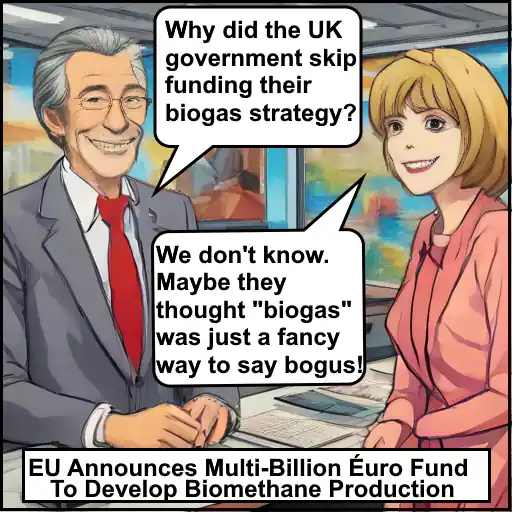
This article explores, why this is, along with upcoming trends and solutions that promise to revitalise the UK industry and secure its future. Read on to discover the innovations shaping biomethane's tomorrow.
Key Takeaways
- The UK AD industry can look forward to new business ideas and tech advances in 2024. These include:
- Joining more of bigger plants to the gas network grid and finding clever ways to use CO2.
- A rule called the Simpler Waste Collection Strategy will start in 2026, making sure more food waste gets turned into clean energy. This is a big chance for AD plants to grow.
- UK government plans like GGSS and RTFO support making more green gas. In the Green Gas Support Scheme (GGSS) they offer money help for new AD facilities that make biomethane, which is good for the planet.
- Smart money plans are key for AD's future success. For example, companies like Future Biogas aim to make extra cash by selling CO2 from their plants.
- Green investment experts will play an important part in helping AD plant owners find funding and get better at what they do. They will also come up with new ideas for green energy in 2024.
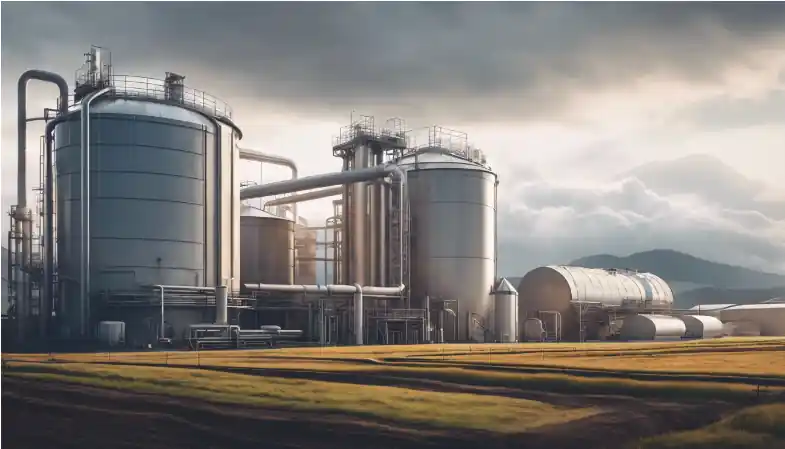
The Current Challenges Facing the UK Anaerobic Digestion (AD) Industry
The UK AD industry faces challenges such as high operation and maintenance costs, lack of government funding, and the risk of decommissioning assets when original support ends. These factors hinder the growth and development of the industry, requiring innovative solutions for a sustainable future.
High operation and maintenance costs
Running a biogas plant can be expensive. The machines, tanks, and systems need regular care to work well. This means spending money on skilled people and keeping parts in stock for repairs.
Skilled personnel and parts for repairs add to costs, as do energy expenses in converting biogas into electricity or heat.
Staying ahead of wear and tear helps avoid big breakdowns that can cost the business dearly. Smart planning for operation and upkeep is key to making sure your plant stays profitable over time.
Effective planning is vital for maintaining profitability lest the profits evaporate due to unplanned maintenance.
Cost Reductions as Seen for Wind and Solar Infrastructure are Rare in the AD Sector
Keeping operations going is already a tough job with high costs for anaerobic digestion (AD) plants. Unlike wind and solar power, AD hasn't seen the same drop in prices as provided by the economics of scale in other renewable sectors.
Wind turbines and solar panels have gotten a lot cheaper because lots of people use them and they keep getting better more efficient designs.
But for AD, things are different. The tech to turn waste into energy hasn't changed much in price.
This means running an AD plant can be costly without the help of lower prices like those in wind or solar projects. And when government funds aren't there, it makes it even harder to keep these plants working well over time.

Lack of UK government funding
While wind and solar energy have seen costs fall, the UK anaerobic digestion (AD) industry has not been so lucky.
But, worse still is the fact that money from the government isn't providing seed funding to provide a multiplier effect and bring in private investment flowing into AD like it is for other green technologies.
This makes it hard for UK many biogas plant owners to keep going without any significant financial help.
The future of biogas plants faces a big question mark because there’s not enough backing from the top. Without government money, getting feedstock and running plants can excessively reduce profitability.
Without government assistance, some owners have needed to spend more of their own cash on their digesters or find other ways to make money, just to keep plants running.
This is tough when you want your business to grow and help fight climate change at the same time.
Risk of decommissioning AD assets when original government support ends
The gap in funding is a big worry. Many anaerobic digestion (AD) plants might close if money from the government stops. Owners of AD facilities face hard choices. They need to keep their plants going without the support they used to get.
This could mean shutting down plants that make clean energy and stop risking losses in the future. Many biogas plant operators have limited bargaining power when negotiating their payments from the utility companies, or are locked into long-term contract supply tariffs that do not reflect the current high energy values available to the main utility companies.
Plants closing can lead to lost jobs and less green gas for heating homes or powering buses. Keeping these plants working is key for clean air and making less trash.
Operators must look for new ways to save money and keep making energy from food scraps and other organic waste, just to keep running their AD plants.
If the older AD plants are shut down, the good work done so far could be undone, harming efforts to fight climate change with cleaner energy sources like biogas.
The Potential for a Bright Future in the AD Industry
In 2024, there will be many opportunities for innovative business models and technical innovations,.
The promised implementation, in England, of the new Simple Waste Collection Strategy, the production of biomethane as a transition fuel, and the likely renewed government support for biomethane production will all be opportunities in 2024.
To learn more about how these factors will shape the future of the UK AD industry, keep reading!
Opportunities in 2024 for innovative business models and continuing technical innovations
The anaerobic digestion (AD) industry is set to embrace new business models and technical innovations in 2024. These changes bring with them opportunities that could make things better for plant owners, operators, and investors, such as:
- Creative ways of running AD plants are popping up. With more food waste collection throughout England, more AD facility owners might start combining different steps in making biogas, like mixing food waste with their existing agricultural biomass sources.
- Technical leaps forward are expected. Feed pumping and digester mixing machines are getting smarter. New software is available to analyse real-time digester chemical data and half-hourly auto-sampling systems from companies like Hach Fostac which means more robust and higher methane output digestion. Mixers may now do more work with less energy and operators are also finding new uses for the stuff left over (digestate) after making biogas.
- Partnerships could be key. AD plant businesses might team up directly with companies that need lots of energy. This way they cut out the middlemen increase their income and can make long-term deals to sell their green gas at a known price.
- More AD Plants to Upgrade to Biomethane Producers: There's talk about linking more of the bigger AD facilities to the main gas-grid pipes. This would let them send their biogas out to even more homes and businesses.
- Plans to catch the CO2 in the raw biogas from AD: 2024 will see a rising prominence of carbon capture projects. By grabbing this CO2 before it gets into the air, plants can do more to help the planet and maybe make extra money selling it.
- Better government support looks promising in 2024: New schemes like the Green Gas Support Scheme GGSS may be implemented that help new AD sites get started and the current GGSS may be extended beyond 2028. Who knows, GGSS may even be extended to include existing AD plants, allowing those to be enlarged under the scheme.
Implementation of the new Simpler Waste Collection Strategy will be a Key Driver for Food Waste Anaerobic Digestion becoming mandatory in 2026
Soon, all AD plants in the UK will need to deal with more food waste. This change comes from a new plan called the Simpler Waste Collection Strategy. Starting in 2026, it will be a rule that we have to turn food waste into biomethane through anaerobic digestion.
This is good news for plant owners and investors because there will be more work and chances to make money.
This big step will help us use less space in landfills for food waste. Instead of throwing it away, we can turn food scraps into a clean energy source called green gas. And this isn't just about helping the planet; it's also smart business.
Government support and new laws should mean there's money to be made in turning food leftovers into power for our homes and businesses.
Production of biomethane as a transition fuel
Biomethane can help the UK change from using fossil fuels. It's a gas made by breaking down organic matter without air, and it’s similar to natural gas. People can use biomethane in homes, businesses, and even for powering vehicles.
This means as we make more biomethane, we need less oil and coal. Using biomethane helps cut down CO2 emissions. That's good because it slows down climate change.
Making more biomethane also fits with government plans like the Green Gas Support Scheme (GGSS). This plan gives money to new plants that want to put green gas into the UK gas grid.
When plants get this support, they can grow bigger and make more clean fuel for everyone. Investors see this as a chance to put their money into something important for our future.

Likely Renewed Government support for biomethane production
The UK government is expected to renew its support for biomethane production, indicating a positive outlook for the anaerobic digestion (AD) industry. This renewal of support reflects the government's commitment to avoiding stranded assets and promoting sustainable energy sources.
Legislative measures such as the Green Gas Support Scheme (GGSS) provide financial incentives for new AD plants, aiming to increase the amount of green gas in the UK gas grid. Additionally, the Renewable Transport Fuel Obligation (RTFO) mandates that suppliers of transport fuel must demonstrate that a percentage of their fuel comes from sustainable sources, further bolstering government backing for biomethane production.
By supporting biomethane production through these legislative measures, the government signals its intention to drive market growth and offer financial incentives for new AD plants.
Legislative Support for AD in the UK
The UK government supports the AD industry through the Green Gas Support Scheme (GGSS) and the Renewable Transport Fuel Obligation (RTFO), providing a legislative framework for biogas and biomethane production.
These schemes are vital to incentivise investment in renewable energy and reduce carbon emissions.

The Green Gas Support Scheme (GGSS)
The GGSS offers financial incentives for new AD plants to increase the amount of green gas in the UK gas grid. This scheme is the current relevant legislation providing support to the AD industry in the UK.
Government backing for biomethane production and preventing stranded assets align with the legislative framework for AD, offering assurance and stability for plant owners, operators, and investors.
Investors should note that the GGSS provides a crucial boost by incentivising new AD plants to contribute more green gas to the UK's gas grid. Notably, this scheme reflects governmental backing for biomethane production and ensures that assets do not become stranded – factors vital in assuring long-term financial security within the AD industry.
The Renewable Transport Fuel Obligation (RTFO)
The Renewable Transport Fuel Obligation (RTFO) is a crucial aspect for anaerobic digestion plant owners, operators, and investors. It mandates that suppliers of transport fuel in the UK prove that a percentage of the fuel comes from sustainable sources.
Furthermore, it provides financial incentives for new AD plants to increase the amount of green gas in the UK gas grid. The RTFO legislation aims to promote the production and use of green gas by incentivising sustainable sources for transport fuel, aligning with the government's strategy for decarbonisation and energy security.
With its emphasis on promoting sustainable sources for transport fuel, the RTFO presents an essential opportunity for anaerobic digestion plant owners, operators, and investors. By integrating with this legislative support framework, they can not only contribute to reducing carbon emissions but also benefit from financial incentives aimed at advancing green gas usage within the UK market.
Innovative Business Models and Financial Solutions for the Future of AD
Innovative business models and financial solutions are crucial for the future of the AD industry, including connecting larger plants to the gas grid, integration into third-party provider's vertical supply chain, commercialisation of reducing CO2 emissions further by implementing AD Carbon Capture, and circular economy initiatives for feedstock supply.
These initiatives will drive growth and sustainability in the industry while also contributing to decarbonisation efforts.
Connecting larger plants to the gas grid
The Green Gas Support Scheme (GGSS) provides financial incentives for AD plants to link with the UK gas grid, offering a strategic opportunity for plant owners and investors. By integrating into the gas grid, larger plants can access a wider market and enhance their revenue streams through biogas distribution.
This move not only strengthens the UK's renewable energy infrastructure but also aligns with sustainable goals, emphasising low-carbon energy production.
Future Biogas intends to commercialise CO2 emissions generated during the AD process, contributing to net-zero objectives. This forward-thinking approach offers an additional income stream for plant owners and operators while supporting climate change mitigation efforts.
Integration into third-party provider's vertical supply chain
Integrating into a third-party provider's vertical supply chain offers innovative business opportunities for anaerobic digestion (AD) industry stakeholders. Through this integration, larger AD plants can connect to the gas grid and supply biomethane to households and industries, paving the way for financial security and insulation from volatile fossil fuel markets.
Future Biogas aims to capitalise on this model by commercialising CO2 emissions generated in the AD process, contributing to net-zero goals while unlocking potential profits in the growing CO2 market.
These initiatives present promising prospects for long-term growth and sustainability in the AD industry, aligning with future trends that plant owners, operators, and investors should consider.
By integrating into a third-party provider's vertical supply chain, AD industry participants have an opportunity to secure their position as key contributors to renewable energy pathways.
Reducing CO2 emissions further by implementing AD Carbon Capture
Future Biogas is spearheading the commercialisation of CO2 emissions from the AD process, creating a unique revenue stream for plant owners and investors. This innovative approach not only reduces environmental impact but also presents an opportunity to generate additional income by selling captured CO2.
By leveraging this method, anaerobic digestion plant operators can participate in carbon markets while contributing to global efforts in mitigating climate change.
Amberside Advisors offer specialised expertise in green energy solutions, providing valuable insights into AD Carbon Capture implementation. With their industry knowledge and financial acumen, they can develop tailored strategies for integrating carbon capture technology within existing infrastructure, ensuring long-term sustainability and profitability for anaerobic digestion plants.
Circular economy initiatives for feedstock supply
Circular economy initiatives and changes to food waste collection policy could provide future opportunities for feedstock supply. These initiatives aim to reduce waste by ensuring that organic materials are reused, recycled, or repurposed instead of being thrown away.
This presents a potential source of organic waste for anaerobic digestion plants, offering a sustainable and reliable feedstock supply for biogas production. Additionally, these initiatives align with the growing focus on sustainability and environmental responsibility, making them an attractive prospect for investors looking to support green energy solutions in the AD industry.
Future Biogas and their Long-Term Financial Security Plan
Future Biogas and their Long-Term Financial Security Plan will focus on insulation from volatile fossil fuel market, selling CO2 emissions for potential profits, and implementing circular economy initiatives for feedstock supply.
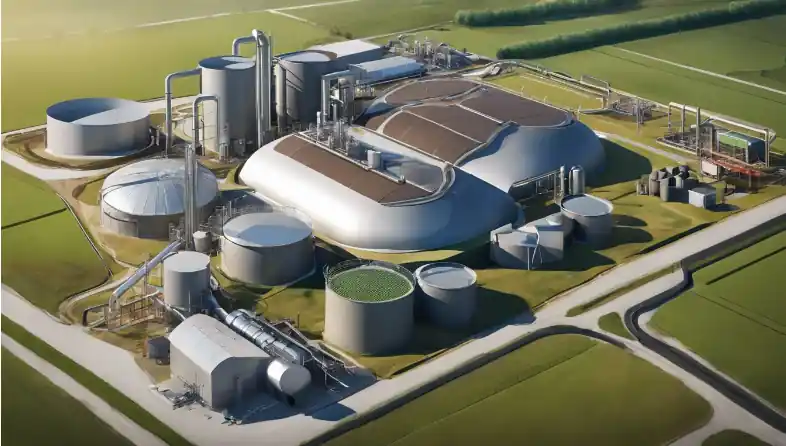
Insulation from the price-volatile fossil fuel market
Future Biogas has developed a strategic plan to insulate the anaerobic digestion (AD) industry from the unpredictable and fluctuating fossil fuel market. This aims to provide stability and long-term financial security for AD plant owners, operators, and investors.
By focusing on reducing reliance on traditional energy sources, Future Biogas seeks to create a sustainable future where AD can thrive independently of external market volatility. They also plan to harness potential profits by commercially selling CO2 emissions, contributing towards net-zero goals and further securing the financial future of the AD industry.
Looking ahead – Legislative Support for AD in the UK
Selling CO2 emissions for potential profits
Future Biogas plans to sell CO2 emissions generated in the AD process commercially, aiming for potential profits and opportunities in the CO2 market. This initiative aligns with the industry's contribution to net-zero goals and aims to insulate the industry from the volatile fossil fuel market.
By commercialising CO2 emissions, Future Biogas seeks long-term financial security for the AD industry, countering changes in the funding environment.
The company sees selling CO2 emissions as a strategic move to secure financial stability and respond innovatively to market demands. Emphasising on potential profits through this approach could provide a sustainable model for anaerobic digestion plant owners, operators and investors amidst evolving energy landscapes.
Specialist Biogas Industry Financial and Investment Advisors and Their Role in Supporting the AD Industry
Specialist biogas industry financial and investment advisors will play a crucial role in 2024 navigating subsidies and funding, maximising existing AD plants, and providing innovative solutions in the green energy space.
Their expertise is essential for the long-term success and growth of the AD industry.
Navigating subsidies and funding for facilities producing biogas and biomethane in 2024
For anaerobic digestion plant owners, operators, and investors in the UK, securing subsidies and funding is crucial amidst government support uncertainties. Amidst these challenges, Amberside Advisors provides specialised support to navigate through available subsidies and funding options.
They focus on maximising the potential of existing AD plants while strategising short and medium-term financial pathways for the industry. With increasing pressure on AD asset owners due to uncertain government funding,
Anaerobic digestion plant owners, operators, and investors are facing uncertainties regarding future government funding in the UK. Navigating through this complex landscape necessitates expertise and guidance without jargon or fluff.
Maximising existing facilities producing biogas and biomethane in 2024
To ensure long-term financial security for existing AD plants, exploring technology upgrades and process optimisations is crucial. This may involve integrating advanced gas purification systems to enhance biomethane quality, thus opening up opportunities for new market segments.
Maximising investments can also entail seeking strategic partnerships with distributors to expand the reach of biogas and biomethane production. Moreover, tapping into organic waste sources such as energy crops and sustainable food waste could bolster plant efficiency while complying with renewable heat incentives.
Additionally, capitalising on the Renewable Transport Fuel Obligation (RTFO) by focusing on biofuel production from anaerobic digestion can contribute to revenue diversification.
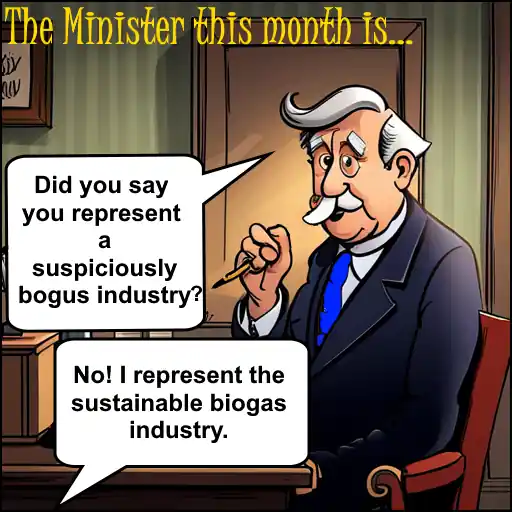
A Summary of Our Opinion of the Likely Future Trends and Predictions for Biogas and Biomethane in 2024
In conclusion, the UK Anaerobic Digestion (AD) industry faces challenges but also holds potential for a bright future.
Will it be the pivotal year we hope for, with the UK government finally moving forward from fine words in support of the industry to follow Europe by putting some much-needed seed cash into the industry?
On the other hand, even without government help, innovative business models and financial solutions, along with scientific and technical improvements, will help drive growth in biomethane production and waste management efficiency during 2024.
These strategies offer practical and efficient ways to secure long-term financial security and navigate a difficult funding environment.
By embracing these approaches, stakeholders can make significant improvements in the industry's sustainability and profitability.
Consider exploring further resources to delve deeper into AD strategies and financial guidance for long-term success.
FAQs on Biogas and Biomethane in 2024
1. What is anaerobic digestion in the UK?
Anaerobic digestion in the UK is a process that turns organic wastes like food and animal waste into biogas and biomethane for energy.
2. Why is biogas important for the future of the UK?
Biogas can help cut down on using oil and gas, which are bad for air quality, and it's a key part of making power without harming our planet.
3. Will we see more electric vehicles because of anaerobic digestion advances?
Yes, with better methods to make green energy, there could be more use of electric vehicles as they rely less on petroleum prices going up or down.
4. Are there new ways to get energy from waste being made?
Indeed! Technological advancements are always happening in areas like gasification and renewable heat incentive (RHI) programs to make cleaner power from rubbish.
5. Will burning fossil fuels be reduced if we use more bioenergy from AD plants?
Absolutely! Using products from anaerobic co-digestion instead of fossil fuels reduces the need for fossil fuel energy and can slow climate change by putting fewer harmful greenhouse gases into the air.
6. How might investments in renewable energy affect Anaerobic Digestion industry growth?
Investing in things like anaerobic digestion, solar panels, and wind turbines, is becoming much more accepted by investors and will boost how much renewable power we can make; this will include growing the production of biogas through Anaerobic Digestion plants too.
7. How is Biogas and Biomethane Produced in the UK?
In the UK, biogas and biomethane are produced through the anaerobic digestion of organic waste, such as food scraps, agricultural residues, and sewage sludge. This process is carried out by biogas plants and facilities across the country.
8. What are the Environmental Benefits of Biogas and Biomethane Production?
Biogas and biomethane production help reduce greenhouse gas emissions, divert organic waste from landfills, and promote a circular economy. By utilizing these renewable energy sources, the UK can decrease its reliance on fossil fuels and combat climate change.
9. What are the Economic Benefits of Biogas and Biomethane Production?
Biogas and biomethane production create new opportunities for businesses, farmers, and local communities. By turning waste into energy, these industries can generate revenue, create jobs, and contribute to the UK's green economy.
10. How Can I Get Involved in Biogas and Biomethane Production?
Individuals and businesses can participate in biogas and biomethane production by supporting local projects, investing in renewable energy initiatives, and advocating for sustainable practices. There are also educational resources and training programs available for those interested in learning more about these industries.
11. What is the Future of Biogas and Biomethane Production in the UK?
The future of biogas and biomethane production in the UK looks promising, with continued growth and innovation in the renewable energy sector. Government support, technological advancements, and public awareness are driving the expansion of these industries, paving the way for a more sustainable and resilient energy future.



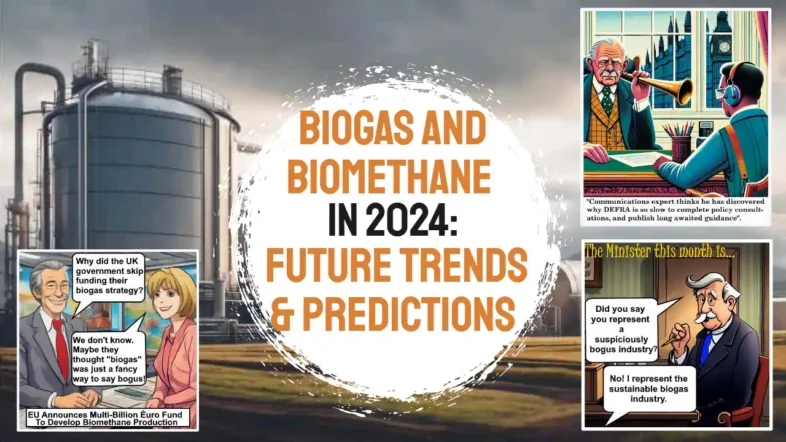
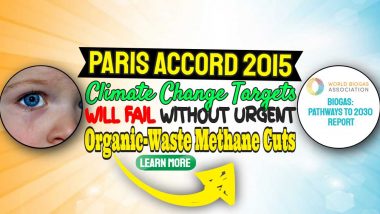
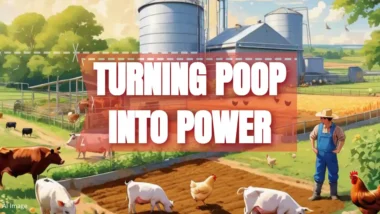


Funding gap threatens clean energy from waste. Shutting down plants could set us back on climate goals.
Do we know the largest producers of Biomethane in the UK?
That’s a good question. I don’t believe that I have see anyone saying that they make the most!